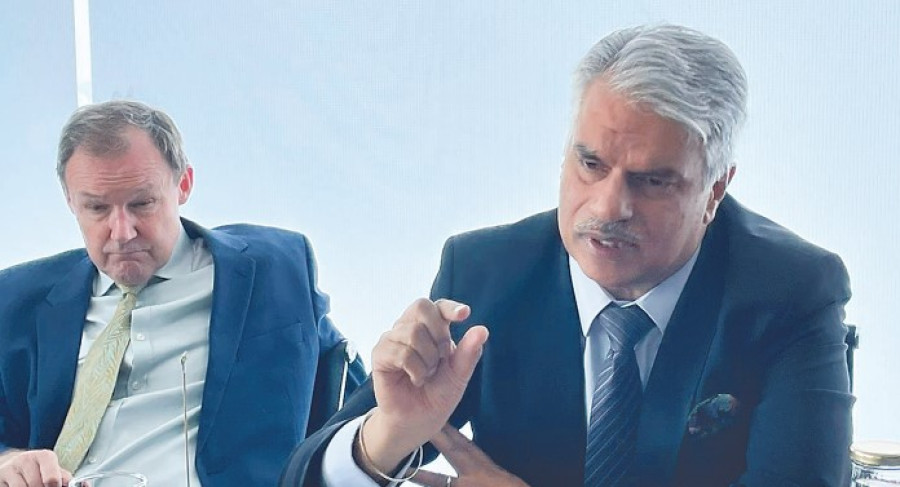Money
British investors for double taxation avoidance agreement
The UK investors are also looking for investment protection through the bilateral investment treaty, which protects companies from any policy changes while doing business.
Post Report
As Nepal is graduating from the category of the least developed countries by 2026, the British government said it would facilitate Nepal’s transition phase, particularly by facilitating trade.
“When Nepal graduates from LDCs status, that will not be a cliff edge as we have a very careful scheme to make sure that Nepal still gets into the British market without tariff barriers,” said Rob Fenn, British ambassador to Nepal, speaking at an interaction with journalists organised by British Embassy in Kathmandu on Tuesday.
There is much headroom in the service sector in Nepal and the UK government is going to support that through bilateral grants and work through British International Investment, Fenn said.
“We are very much focused on small and medium entrepreneurs (SMEs) and want to promote Nepal in that sector,” Fenn said. “We have two programmes for Nepal. The first one is for green growth, under which Nepal will get access to climate finance. The second is to help SMEs grow through our revolving funds.”
The success stories of SMEs will attract more Nepali entrepreneurs to start setting up businesses, he added. “Hopefully, the diasporas will come back and pour money into the economy here,” Fenn said.
Harijinder Kang, His Majesty's Trade Commissioner for South Asia and the British Deputy High Commissioner for Western India, said that the tourism and service sectors like IT, pharmaceuticals and financial services are some of the areas where the government of Nepal needs to intervene to make these sectors look attractive.
“We discussed many issues with Nepal’s ministers and governor of the central bank on Monday to say there are certain things that British investors look at before investing in Nepal,” Kang said.
One is they look at the tax policy, implications in terms of investing, operating, and repatriation of profit, he said. Nepal has double tax agreements with various countries but not with the UK.
“It mathematically makes no sense if you have to pay tax in both the UK and Nepal,” he said. “The issue should be resolved first. Officials from both countries have to sit down and negotiate on how that treaty should be in practice.”
He said that people are setting up their businesses in India and coming to Nepal to avoid double taxation and that’s a distortion of the policy.
Nepal signed its first Double Taxation Avoidance Agreement with the neighbouring country India in January 1987. After India, a second tax treaty was signed with Norway in 1996. To date, Nepal has a bilateral tax treaty with 11 countries, including Thailand, Sri Lanka, Mauritius, Austria, China, Qatar, Bangladesh, South Korea and Pakistan.
“Companies want to be here. So we are looking for this opportunity,” Kang said.
The UK investors are also looking for investment protection through the bilateral investment treaty, which protects companies from any policy changes while doing business.
The other potential areas for investment in Nepal are tourism, hydropower, education, IT and education.
“What gives us confidence is that there were not only representatives from the incumbent government sitting at the stage during the third Nepal Investment Summit, but representatives from the opposition party were also at the same stage with the same agenda,” said Kang. “Political and economic certainty is always a good thing that investors look for.”




 9.83°C Kathmandu
9.83°C Kathmandu














